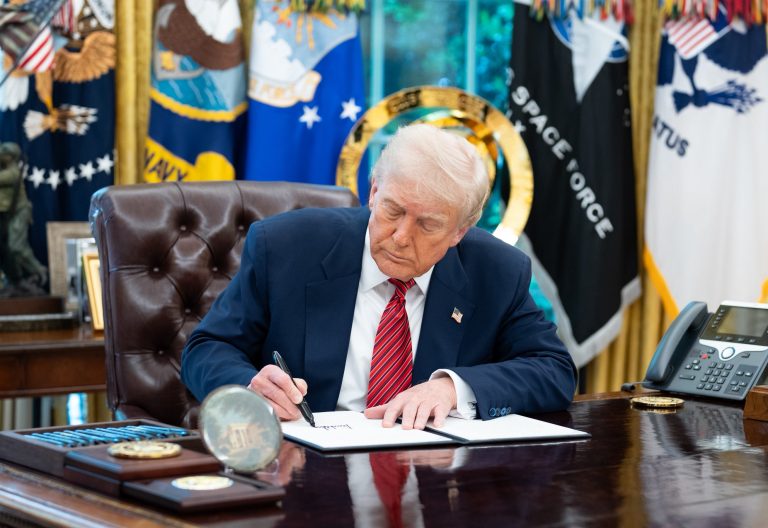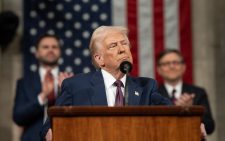Trump’s tariffs hit baby industry hard: report

Tariffs on Chinese goods are making it more expensive to raise children in the United States, driving up prices and threatening shortages of critical baby gear at a time when household budgets are already under strain, reported The Washington Post on Wednesday.
“Virtually every car seat, stroller, bassinet and changing table sold in the United States is made in China, making the children’s products industry among the most vulnerable to fast-rising costs and shortages,” noted the report.
While many industries have taken steps over the years to move manufacturing of clothing, computers and other products to Vietnam, Thailand and India, the baby sector has largely stayed in China, partly due to long-standing ties with factories that meet the U.S. stringent safety requirements, said the report.
More than 70 per cent of the baby gear purchased by Americans is manufactured by U.S. companies in China, according to the Juvenile Products Manufacturers Association (JPMA).
Product manufacturers
“But with new tariffs more than doubling the cost of Chinese imports, prices on baby necessities are rising fast,” added the report.
“And manufacturers and retailers are suddenly slamming on the brakes, halting months’ worth of shipments that economists warn will lead to shortages of strollers, cribs and other necessities as early as this month.”
Fight to reshape nation
The Cost Coalition will push its message through a combination of paid advertising, social media, press interviews and on-the-ground events with small business leaders, veterans and the faith community, according to the report.
“The new group enters a political landscape already packed with powerful voices fighting to shape the national conversation little more than 100 days after Trump began his second term,” noted AP.
“The Republican president vowed to ‘end inflation’ on Day 1, but he has focused more on immigration, culture wars and exacting revenge against his political adversaries while launching a global trade war that has pushed some costs higher and threatens to send the U.S. economy into recession.”














